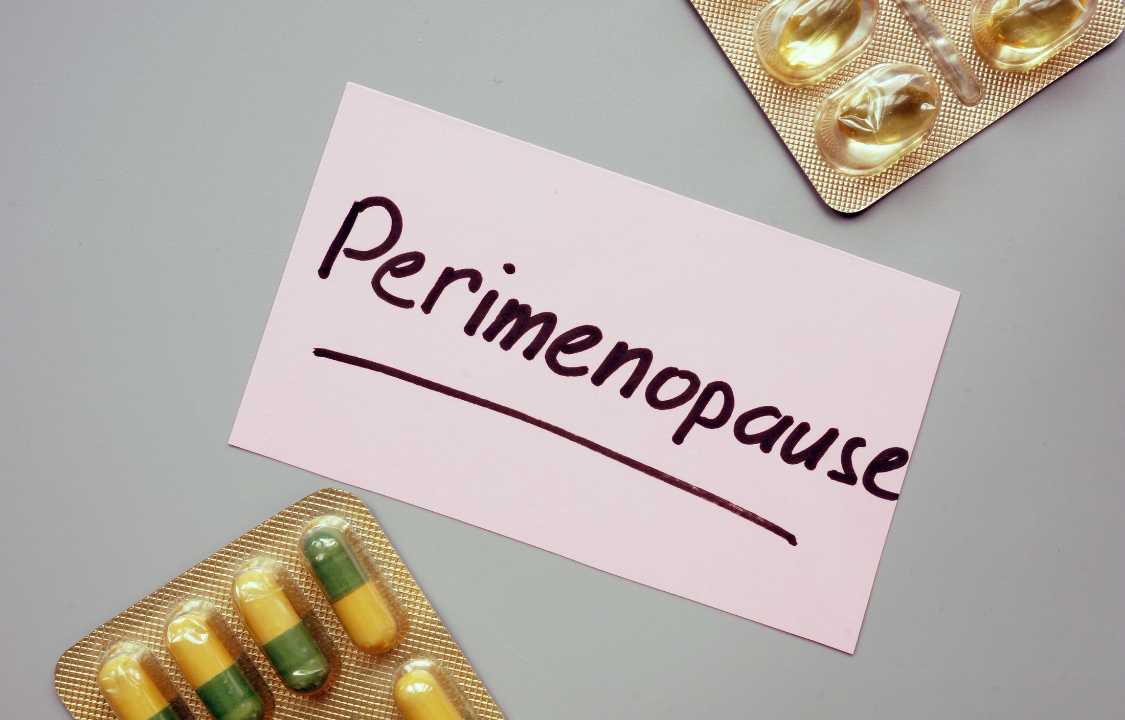Diagnosis, Health Care, Insight, Menstruation, Symptoms, Treatment
What Is Perimenopause?
Perimenopause, often referred to as the “menopausal transition,” is a transformative phase in a woman’s life, signaling the body’s natural progression towards menopause. Menopause, the defining moment when menstruation ceases for 12 consecutive months, marks the culmination of this transition. While the average onset of perimenopause occurs in one’s mid-40s and spans approximately four years, the variability in individual experiences can lead to an earlier or prolonged transition, spanning over a decade in some cases.
The tumultuous hormonal fluctuations that characterize the menopausal transition can trigger a wide array of symptoms, encompassing changes in menstrual patterns, vaginal discomfort, hot flashes, sleep disturbances, altered libido, weight fluctuations, shifts in fat distribution, dry skin, increased susceptibility to urinary tract infections (UTIs), joint and muscle discomfort, and a spectrum of mental health symptoms, including mood swings, anxiety, irritability, and depression, among others. This transformative period also introduces heart palpitations and migraines into the equation, creating a complex tapestry of experiences for each individual.
Understanding the Root Causes of Perimenopausal Symptoms
Perimenopausal symptoms find their origin in the intricate interplay of hormonal dynamics within the body, with particular emphasis on estrogen. As women age, the production of estrogen dwindles within the ovaries, a pivotal hormonal shift that cascades through the body’s systems, influencing both physical and mental well-being. Estrogen, in conjunction with progesterone, regulates the menstrual cycle, orchestrating the rise and fall of follicle-stimulating hormone (FSH) and luteinizing hormone (LH), crucial players in the menstrual process. As estrogen levels decrease, the delicate hormonal balance wavers, potentially leading to missed periods or irregular cycles, often serving as the first telltale sign of perimenopause.
The Art of Diagnosis in Perimenopause
Diagnosing perimenopause differs from traditional medical diagnoses, as it does not invariably necessitate intervention or treatment. Instead, it is a natural evolution in a woman’s life, marking the transition into a distinct phase. The definitive hallmark of having traversed perimenopause is the attainment of menopause itself, as signaled by an uninterrupted year without menstruation.
Nonetheless, individuals experiencing bothersome symptoms are encouraged to engage with healthcare providers to address their concerns. Healthcare professionals typically employ a multifaceted approach, encompassing blood tests, physical examinations, comprehensive discussions regarding symptoms, medical history, and menstrual cycles, to provide a holistic assessment of an individual’s perimenopausal experience. In certain instances, referrals to specialists, including endocrinologists or obstetricians and gynecologists, may be warranted to facilitate in-depth diagnostic evaluations.
Navigating the Seas of Perimenopausal Treatment
While perimenopause does not inherently demand intervention, individuals grappling with unwelcome symptoms can explore various avenues for relief. Treatment strategies aim to alleviate discomfort and enhance overall quality of life. Key considerations in the treatment journey encompass hormone therapy, alternative medications, lifestyle modifications, and mental health support.
- Hormone Therapy (HRT): A prevalent approach to perimenopausal symptom management involves hormone therapy, also known as hormone replacement therapy (HRT). This strategy effectively addresses a spectrum of symptoms, including vaginal dryness, hot flashes, night sweats, mood swings, and joint discomfort. Moreover, HRT plays a pivotal role in mitigating bone loss and diminishing the risk of colon cancer, prevalent concerns during the transition into menopause. HRT typically involves the administration of synthetic estrogen via diverse modalities such as pills, skin patches, implants, gels, or sprays. Additionally, combined HRT incorporates progestin, a synthetic form of progesterone, to mitigate the risk of uterine cancer.
- Other Medications: In tandem with hormone therapy, healthcare providers may prescribe alternative medications tailored to specific symptoms. Hot flashes, for instance, can be managed with selective serotonin reuptake inhibitors (SSRIs), clonidine, or Neurontin (gabapentin). Over-the-counter (OTC) vaginal moisturizers and lubricants offer relief from vaginal dryness and pain during intercourse. In certain scenarios, oral contraceptives may be recommended to address irregular menstrual patterns.
- Lifestyle Modifications: Lifestyle adjustments wield substantial influence in alleviating perimenopausal symptoms. Incorporating a calcium-rich diet, regular exercise, adequate rest, mindfulness practices (e.g., yoga and meditation), and fostering connections within a supportive community can contribute to symptom amelioration. Furthermore, lifestyle choices such as smoking cessation and responsible alcohol consumption offer additional avenues for symptom management. Strategies to mitigate hot flashes entail avoiding common triggers, managing weight, using fans, opting for loose and breathable clothing, maintaining a cool sleeping environment, taking cool showers, and managing stress levels.
- Mental Health Support: Perimenopause often ushers in a host of mental health challenges, ranging from mood swings and anxiety to depression. Collaborating with healthcare providers can yield personalized treatment plans, incorporating cognitive-behavioral therapy (CBT), antidepressants, or a combination of therapeutic modalities to enhance emotional well-being.
In essence, perimenopause, the precursor to menopause, is a distinctive phase in a woman’s life characterized by hormonal fluctuations and a spectrum of potential symptoms. While it is not a health condition necessitating universal treatment, individuals navigating this transformative journey are encouraged to explore therapeutic options tailored to their unique experiences, guided by healthcare professionals who specialize in menopausal care.

